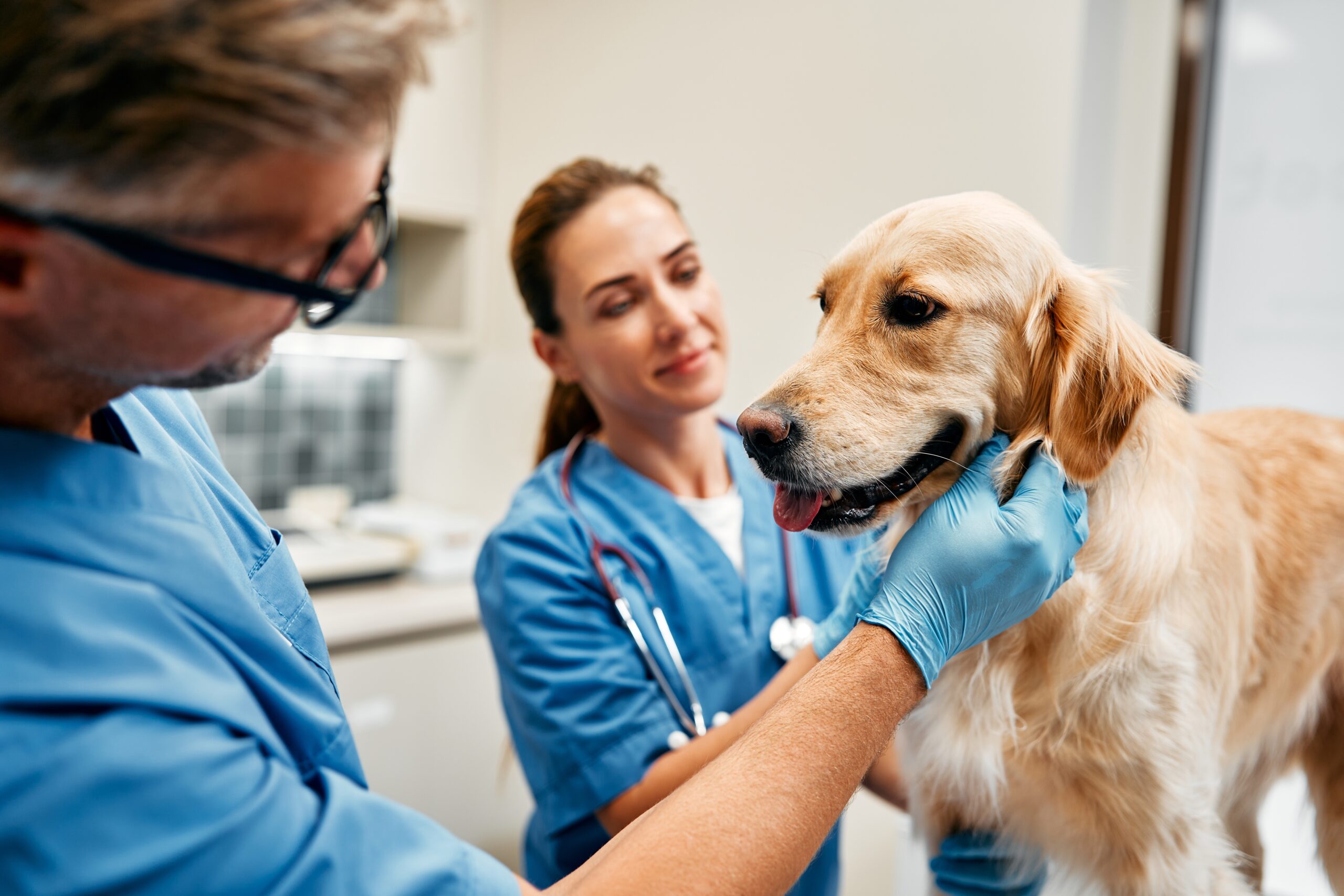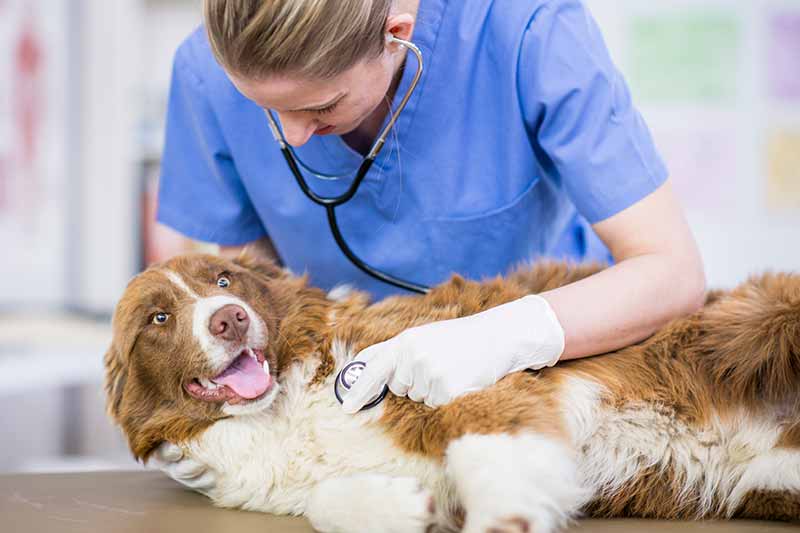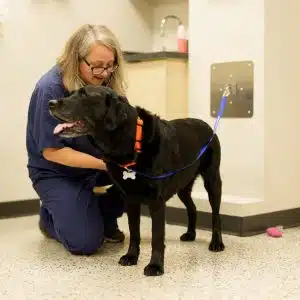What to expect before your pet’s Pet Cancer Surgery
Wiki Article
Comprehensive Guide to the Services Offered by a Veterinary Oncologist
Veterinary oncology incorporates a large selection of solutions targeted at dealing with and diagnosing cancer cells in animals. Pet Cancer Surgery. Oncologists utilize innovative diagnostic methods and supply various treatment choices customized per animal's requirements. They additionally focus on supportive treatment and supply beneficial resources for pet dog proprietors. Recognizing these solutions is important for making informed decisions. What specific aspects of vet oncology can significantly affect a pet's therapy journey?Understanding Veterinary Oncology
Veterinary oncology is a customized area concentrated on identifying and dealing with cancer cells in animals. This discipline includes a vast range of techniques, from clinical therapies such as chemotherapy and immunotherapy to surgical interventions intended at getting rid of tumors. Vet oncologists are educated to acknowledge the distinct indications of cancer cells in various varieties, enabling them to tailor therapy plans to private people.Along with typical therapies, vet oncology emphasizes helpful treatment, which plays a necessary function in improving the lifestyle for affected pets. This includes pain administration, dietary support, and palliative treatment choices. Collaboration with pet dog owners is vital, as they are important to decision-making concerning their pets' treatment courses. As study breakthroughs, vet oncology remains to progress, offering new hope and improved outcomes for animals diagnosed with cancer. Overall, this area is fundamental for resolving the intricacies of cancer in companion animals.
Advanced Diagnostic Techniques
Advanced diagnostic strategies play an essential function in veterinary oncology, offering essential insights into the visibility and degree of cancer cells in animals. Imaging modalities such as ultrasound, CT scans, and MRI are frequently used to envision growths and evaluate their attributes. In addition, biopsy procedures are very important for acquiring tissue examples, enabling for conclusive medical diagnosis and tailored therapy plans.Imaging Modalities Utilized
Imaging methods play an important duty in the diagnosis and management of cancer in pets. Veterinary oncologists utilize different sophisticated imaging strategies to analyze lump presence, dimension, and transition. Radiography, or X-rays, provides a preliminary sight of bone and chest conditions, while ultrasound offers real-time imaging of soft cells, enabling for thorough assessment of internal organs. Calculated tomography (CT) enhances visualization of complicated anatomical frameworks and enables 3D restorations, aiding in exact lump localization. Magnetic vibration imaging (MRI) is important for soft cells distinction, particularly in mind growths. Furthermore, nuclear medicine strategies such as positron discharge tomography (PET DOG) aid determine metabolic activity within growths. Jointly, these modalities improve analysis accuracy, directing effective treatment approaches for oncological clients.Biopsy Procedures Discussed
Following the first evaluation via imaging methods, acquiring a conclusive medical diagnosis usually needs cells tasting through biopsy procedures. Veterinary oncologists make use of different biopsy methods based on the lump's location and features. Great needle desire (FNA) is a minimally intrusive method that draws out cells for cytological evaluation, suitable for shallow masses. Core needle biopsies offer larger cells examples and serve for much deeper growths, permitting histopathological evaluation. Surgical biopsies include excising a section or the whole tumor, facilitating thorough assessment. These procedures not only validate the existence of cancer however additionally aid determine its kind and quality, assisting treatment choices. Each biopsy technique is selected meticulously to stabilize analysis accuracy with person safety and convenience.Treatment Alternatives for Cancer in Family pets
When an animal is diagnosed with cancer cells, a selection of therapy options come to be offered to aid boost and handle the condition lifestyle. Vet oncologists typically recommend a multidisciplinary method tailored to the individual family pet's demands, which may consist of surgery, radiation therapy, immunotherapy, or alternate therapies.Surgery is frequently employed to eliminate tumors and afflicted tissues, possibly bring about total remission in many cases. Radiation treatment aims to target and ruin cancer cells, lowering tumor size and minimizing signs and symptoms - Veterinary Oncologist. Immunotherapy takes advantage of the animal's body immune system to eliminate cancer better, while alternate treatments might include acupuncture or natural supplements to support total health
Each therapy choice lugs its very own benefits and risks, and vet oncologists function carefully with family pet proprietors to create a thorough plan that aligns with the pet's certain medical diagnosis and the proprietor's dreams. The supreme objective is to improve the pet dog's convenience and high quality of life throughout their cancer journey.
Radiation treatment for Animals
Chemotherapy is a common therapy option for family pets diagnosed with cancer cells and is usually made use of along with other therapies detailed by veterinary oncologists. This therapy includes the management of specific drugs designed to target and destroy cancer cells, consequently minimizing tumor dimension and avoiding the spread of the disease. Veterinary oncologists customize chemotherapy protocols based on the sort of cancer cells, the pet dog's total health, and the desired therapy result.Side results can take place, as these medications may additionally affect healthy and balanced read what he said cells. Common reactions consist of nausea or vomiting, vomiting, and momentary adjustments in cravings - Veterinary Oncology Services. Veterinary oncologists are furnished to handle these side effects effectively, ensuring the animal's comfort throughout the therapy procedure. Regular tracking with blood tests and follow-up consultations is vital to examine the animal's reaction to radiation treatment and make needed adjustments. Eventually, radiation treatment can give substantial advantages, enhancing the quality of life for pet dogs facing cancer cells diagnoses

Radiation Treatment in Vet Medication
Radiation treatment functions as an efficient treatment alternative for pets identified with localized tumors, supplying a targeted approach to cancer monitoring. This technique utilizes high-energy radiation to harm the DNA of cancer cells, inhibiting their capability to multiply. It is particularly beneficial for tumors that are not open to medical elimination or for instances where surgical treatment might not be viable due to the tumor's location.Vet oncologists tailor radiation methods based upon lump kind, size, and area, along with the family pet's total health. Treatment can be delivered via outside beam radiation or brachytherapy, each with distinctive advantages. Commonly, multiple sessions are needed to make best use of effectiveness while minimizing adverse effects.
Pet dogs may experience short-term reactions such as skin inflammation, the total objective is to diminish lumps and reduce signs, eventually boosting the pet's prognosis and quality of life. Appropriately, radiation therapy plays a necessary duty in detailed cancer cells care.
Palliative Treatment and Top Quality of Life
Palliative care in veterinary oncology concentrates on boosting the high quality of life for animals facing incurable diseases, making certain comfort and dignity in their final days. This customized strategy focuses on discomfort administration, symptom control, and psychological support. Vet oncologists examine each pet's individual demands, tailoring treatments to relieve pain and enhance total well-being.Methods may include carrying out medications for pain alleviation, handling nausea or vomiting, and dealing with other distressing signs. Furthermore, you can try these out nutritional assistance is typically offered to preserve strength and boost appetite. The psychological facet of palliative care is just as crucial; developing a tranquil setting assists lower anxiety for both animal and proprietor.
Inevitably, the objective of palliative care is to permit pet dogs to enjoy their staying time with as much pleasure and self-respect as feasible. By focusing on convenience and lifestyle, vet oncologists play an important duty in ensuring that animals and their family members browse this challenging journey with empathy and understanding.
Assistance for Pet Dog Owners During Treatment

Emotional Advice for Proprietors
Charting the emotional landscape throughout an animal's cancer therapy can be an overwhelming experience for owners. The unpredictability surrounding medical diagnosis and diagnosis can bring about sensations of sadness, stress and anxiety, and helplessness. Vet oncologists acknowledge the importance of emotional support and frequently give assistance to assist proprietors browse this tough trip. Communication is essential; discussing treatment options and possible outcomes can alleviate some fears. Additionally, supplying peace of mind that emotional reactions are valid fosters a supportive setting. Many oncology clinics may additionally recommend assistance teams or therapy solutions customized for family pet owners, facilitating common experiences. Motivating proprietors to focus on self-care throughout this time around is essential, as their emotional well-being straight affects their pet's convenience and total therapy experience.
Resources and Educational Products
Steering with the complexities of a pet dog's cancer therapy can be daunting for owners, making accessibility to trustworthy resources and educational materials necessary. Veterinary oncologists frequently offer an array of handouts, brochures, and online products that discuss therapy alternatives, prospective side impacts, and care strategies. These resources aid empower and debunk the process pet proprietors to make informed choices. Furthermore, several oncology centers provide accessibility to support groups and discussion forums where proprietors can connect with others encountering comparable obstacles, fostering a sense of neighborhood. Educational webinars and workshops conducted by veterinary experts additionally enhance understanding, ensuring that owners are fully equipped to navigate their pet's trip via cancer therapy with self-confidence and understanding.Often Asked Concerns
How Can I Prepare My Pet for a Veterinary Oncology Check Out?
Preparing a pet for a veterinary oncology visit involves celebration clinical records, noting symptoms, and guaranteeing the animal fits. A calm temperament and familiar products can assist relieve anxiousness throughout the visit.What Are the Indications My Family Pet May Have Cancer Cells?
Indicators that a pet dog may have cancer cells consist of inexplicable weight-loss, consistent vomiting or diarrhea, unusual swellings or swellings, sleepiness, changes in hunger, problem breathing, and changes in habits. Trigger vet attention is vital.Exactly How Can I Assistance My Pet Dog Psychologically During Therapy?
Supporting a family pet emotionally during treatment includes offering comfort, preserving routines, using gentle affection, and making certain a tranquil atmosphere. Taking part in peaceful play and normal friendship aids minimize anxiety and fosters a sense of protection.Are There Different Therapies for Family Pets With Cancer cells?
Alternative therapies for animals with cancer cells consist of acupuncture, herbal treatments, and dietary assistance. These techniques may match traditional therapies, advertising total wellness. Consulting with a vet is essential for effective and safe integration of alternate treatments.What Expenses Should I Anticipate for Vet Oncology Services?
The anticipated expenses for vet oncology services can differ considerably, commonly influenced by diagnostics, therapies, and continuous treatment. Pet owners ought to prepare for costs ranging from assessments to specialized therapies, showing the complexity of cancer monitoring.Cooperation with pet dog proprietors is critical, as they are important to decision-making regarding their pet dogs' therapy paths. Each therapy choice lugs its own advantages and dangers, and vet oncologists work carefully with pet dog owners to create a comprehensive plan that aligns with the animal's particular diagnosis and the proprietor's wishes. Animals might experience momentary responses such as skin irritability, the overall purpose is to shrink lumps and reduce signs and symptoms, inevitably boosting the pet's prognosis and quality of life. Support for pet proprietors throughout treatment is vital in steering via go to these guys the emotional challenges associated with a pet's cancer diagnosis. Preparing a pet for a veterinary oncology check out includes gathering medical records, noting signs, and making certain the pet dog is comfortable.
Report this wiki page